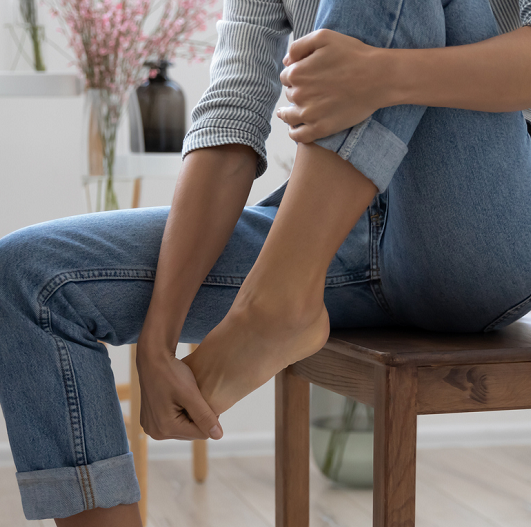COVID Variants JN.1 and HV.1 Symptoms & What You Need to Know

March 07, 2024
Ever since the COVID-19 pandemic began, the virus has changed by forming different versions called variants. These variants happen when the virus copies itself, creating new versions that might act differently or spread more easily.
There have been so many variants that sometimes it's hard to keep track. Which variant dominates now, and how does it compare to others, including the original strain?
Infectious disease expert Cristina Emanuela Cicogna, M.D., provides insight into the latest must-know facts.
“JN.1 and HV.1 are the newer versions of the original COVID-19 virus,” says Dr. Cicogna. “HV.1 was common in fall 2023, while JN.1 quickly became the main variant by December.”
The JN.1 variant is now responsible for nearly all new COVID-19 cases in the United States, according to the Centers for Disease Control and Prevention (CDC), with the highly mutated strain accounting for about 92% of infections.
“What's remarkable about JN.1 is how quickly it became the predominant one," says Dr. Cicogna. "November, it accounted for 5% of viruses, and within a couple of months, it accounted for 93% of the viruses. There's something about this mutation that allows it to bind more to the cells of the respiratory tract."
JN.1 and HV.1 Symptoms
Dr. Cicogna has seen many patients over the past few months with COVID-19 symptoms. And although this variant spread across the United States rapidly, the symptoms aren’t more severe than previous variants.
“People with JN.1 or HV.1 usually feel like they have a cold or the flu,” Dr. Cicogna explains. “They might get a sore throat, feel tired or have a headache. Sometimes, they get an upset stomach, too. But these variants don't often cause serious illness.”
Despite the less severe symptoms, the variants are very contagious. Both JN.1 and HV.1 spread more easily than earlier versions of the virus. JN.1 is especially efficient at spreading from person to person quickly.
“Between December to early January, at least 1 in 3 people had been infected with the JN.1 variant,” says Dr. Cicogna. “But luckily, the majority of people had mild symptoms.”
What You Should Know and Do
Whenever a new variant comes into the picture, patients can still practice the tried-and-true best practices to avoid it. Dr. Cicogna recommends that everyone:
Stay informed and take precautions: Keeping up with the latest news about COVID-19 variants is essential. Stay informed by following trusted sources like the CDC and World Health Organization (WHO). These organizations provide constant updates on new variants, vaccine effectiveness and safety guidelines.
Get vaccinated and encourage others to do the same: Vaccination is still one of the most effective ways to protect yourself and others from severe illness caused by COVID-19 variants, including the JN.1 strain. The vaccines are designed to boost your immune system's ability to fight off the virus, lowering the risk of hospitalization and death. Encourage friends, family, and community members to get vaccinated to help achieve herd immunity and slow the spread of variants.
Practice good hygiene and follow safety measures: Handwashing often and following safety measures are still must-dos to prevent the spread of COVID-19 variants. Ask yourself: Do you still follow these best practices to avoid getting sick?
- Wash your hands frequently with soap and water for at least 20 seconds, especially after being in public places or touching surfaces.
- Use hand sanitizer with at least 60% alcohol if soap and water are unavailable.
- Wear masks in crowded or indoor settings.
- Avoid large gatherings, particularly in areas with high transmission rates.
Monitor your health and seek medical attention if needed: Be mindful of any symptoms of COVID-19, such as fever, cough, shortness of breath, loss of taste or smell, fatigue or body aches. If you experience any symptoms or believe you were exposed to someone with COVID-19, get tested as soon as possible. Contact your health care provider for guidance on testing and treatment options.
Support public health efforts and community initiatives: You can take an active role in helping to stop the spread of COVID-19 variants. Stay informed about local health guidelines and regulations and comply with recommendations from health authorities to protect yourself and others.
“People who had COVID-19 prior to this — as well as people who were vaccinated — are still considered to have some protection, although it wanes over time,” says Dr. Cicogna. “But especially if you have underlying health issues that put you at greater risk of having more severe disease, get vaccinated.”
Next Steps & Resources
- Meet our source: Cristina Emanuela Cicogna, M.D.
- To make an appointment with a primary care doctor near you, call 800-822-8905 or visit our website.
The material provided through HealthU is intended to be used as general information only and should not replace the advice of your physician. Always consult your physician for individual care.






